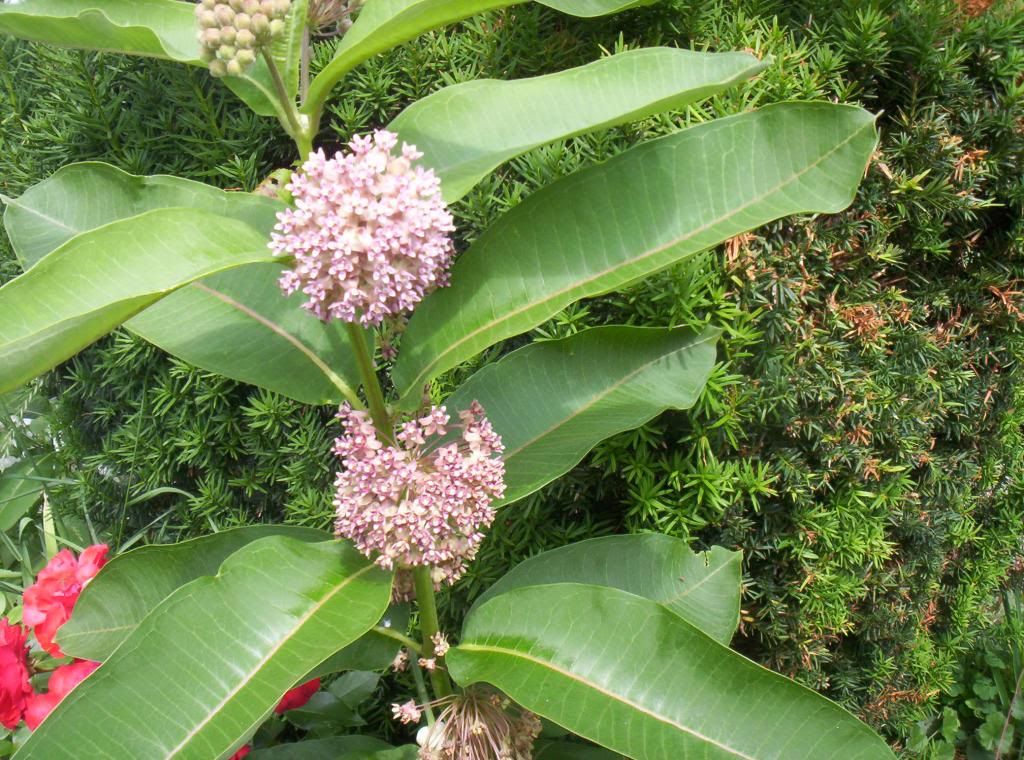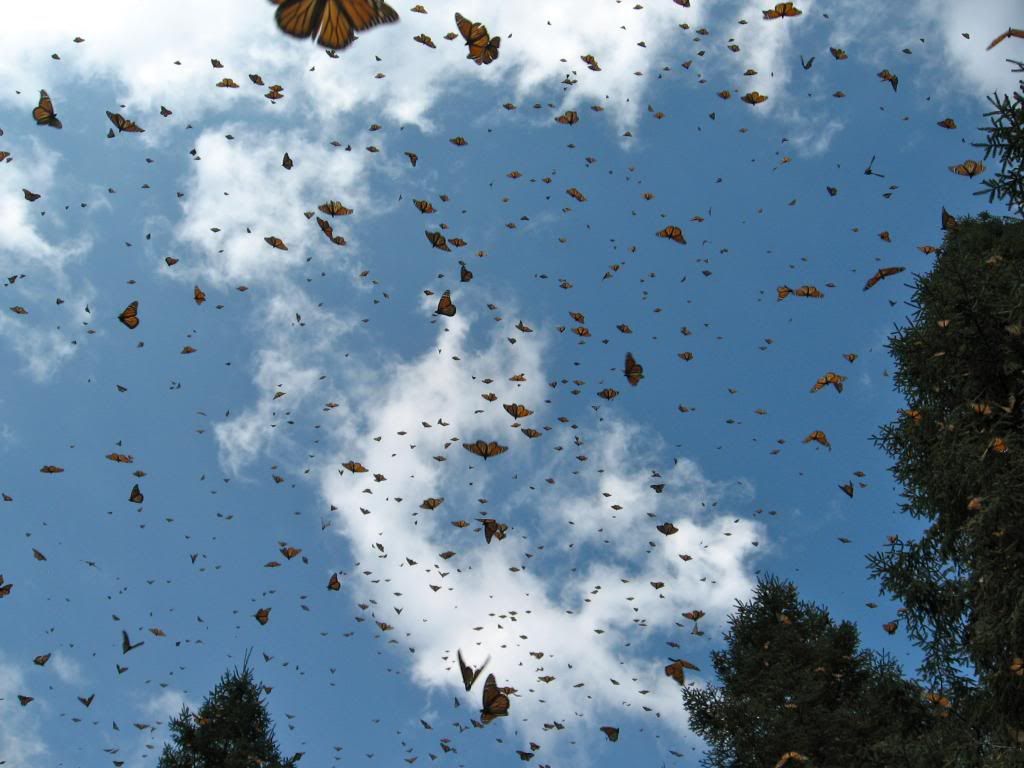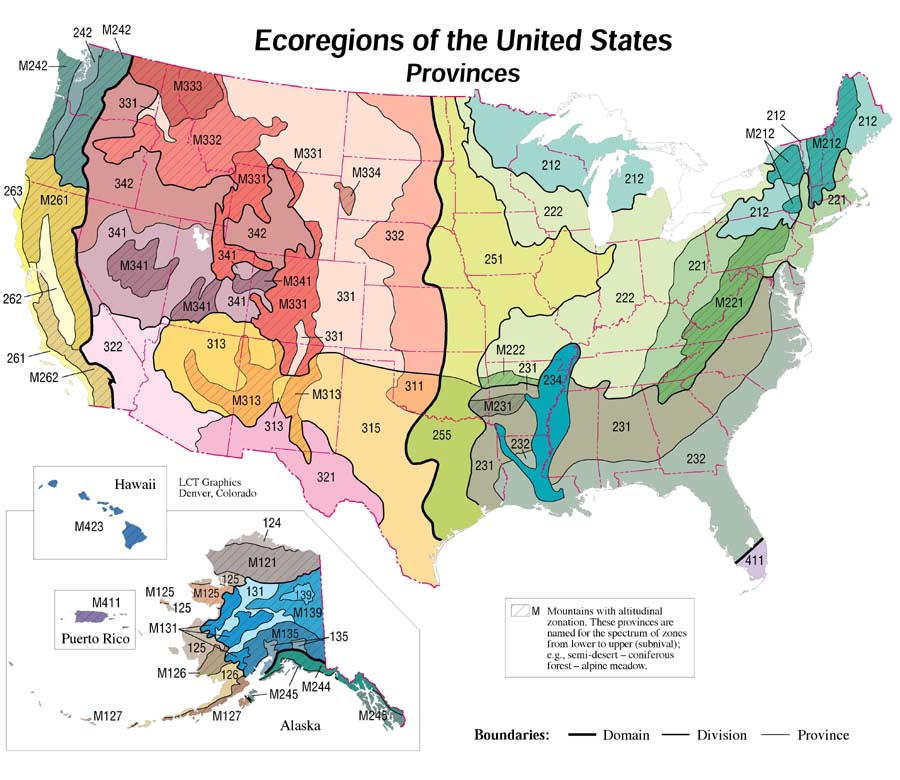General Discussion
Related: Editorials & Other Articles, Issue Forums, Alliance Forums, Region Forumsplant milkweed to save the monarch butterfly
http://www.nytimes.com/2013/10/13/opinion/sunday/monarchs-fight-for-their-lives.htmlMonarchs Fight for Their Lives
------

One recent study suggests that the long-term survival of the species may be in doubt. A few weeks ago, one of the scientists devoted to studying monarchs, Ernest Williams at Hamilton College, summarized for me the threats that have been reported in recent studies.
Nearly every link in the monarchs’ chain of being, he said, is at risk. Illegal logging in Mexico has reduced their winter habitat — an already vanishingly small area, which is itself being altered by the warming climate. Ecotourists who come to witness the congregation of so many butterflies disturb the creatures they have come to see. But perhaps most damaging is the demise of milkweed.
Monarchs have the misfortune to rely exclusively on a plant that farmers all across the Midwest and Northeast consider a weed. There is a direct parallel between the demise of milkweeds — killed by the herbicide glyphosate, which is sprayed by the millions of gallons on fields where genetically modified crops are growing — and the steady drop in monarch numbers.
To anyone who has grown up in the Midwest, the result seems very strange. After decades of trying to eradicate milkweed, gardeners are being encouraged to plant it in their gardens, and townships and counties are being asked to let it thrive in the roadside ditches. What looks like agricultural success, purging bean and corn fields of milkweed (among other weeds), turns out to be butterfly disaster. This is the great puzzle of species conservation — it has to be effective at nearly every stage of a species’ life cycle. And this, too, is the dilemma of human behavior. We live in a world of unintended consequences of our own making, which can never be easily undone.
Benton D Struckcheon
(2,347 posts)Also, there's others: I've noticed that their caterpillars turn up under the leaves of mistflower as well.
JitterbugPerfume
(18,183 posts)in the last couple of years. I did not see one monarch butterfly this year.
SO DAMN SAD My yard used to be full of butterflies.
elfin
(6,262 posts)It did propagate itself from four plants (transplants from a neighbor who was building where they were) to twelve. But just two flowers this year.
Nearly full sun and swamp milkweed near pond has always bloomed.
But NO monarchs visiting and no caterpillars feeding.
LOVE the flowers- smell like an intense combo of Rose and carnation.
Take a sniff if you have never done so.
Liberal_in_LA
(44,397 posts)PasadenaTrudy
(3,998 posts)I had a yard!
dipsydoodle
(42,239 posts)We have UK butterflies dependent on plants which will only grow in specific soils.
Liberal_in_LA
(44,397 posts)dipsydoodle
(42,239 posts)not a gardner. ![]()
Greybnk48
(10,188 posts)We have a 20 foot square patch of milkweed in our front yard. My husband planted it right by the curb and I bitched about it for about 3 years. We have a regular lawn and--milkweed! I relented last year and we had a bumper crop, so in our experience it takes about 3 to 5 years to really establish. As far as soil, ours is very poor and clay based. We put no pesticides or any kind of feed on it (for 27 years). We don't water. When it gets hot and dry here in Wisconsin at the end of July and all of August, we let the grass go dormant. So clearly Milkweed requires nothing special and is drought-hardy.
This year it was beautiful and full of bees! I have several species of bees in the yard now including straight up honey bees. We had Monarchs this year too and people were coming by and talking to us about it and how wonderful they thought it was. I of course had to eat crow (as my husband gloated). We're on a corner of a cul-de-sac with the Milkweed in front and the main sidewalk running along one side of our house. I have a huge perennial flower garden on the side of our house facing the sidewalk. This summer when I was working my garden, almost everyone who stopped to comment were commenting on the Milkweed! LOL!
Not everyone was happy. We were reported to the City this year (bumper crop) and someone came by to tell us and write us a citation. The man asked if we planted them and if so, why. My husband said for the butterflies. From that moment on the City worker referred to the Milkweed as our "butterfly garden." He asked us to do something to make it look "planned." We encircled it with bullet bricks and we were told that there would be no citation for weeds since it was now clearly a beautiful butterfly garden! ![]()
I hope this helps.
dipsydoodle
(42,239 posts)There's always at least one moaning Minnie.
I've got loads of Buddleia about and so get inundated with butterflies. What I like is that you can walk up to them real close and they don't fly away. ![]()
Greybnk48
(10,188 posts)Once some jerk reported us, I'm now the Queen of the Milkweed! My husband's happy we were reported.
PearliePoo2
(7,768 posts)I'm so inspired by your actions, I'm going to plant a milkweed butterfly garden too!
![]()
![]()
![]()
Greybnk48
(10,188 posts)We gathered some seeds this a.m. for our neighbor. Thier 8 year old son likes my husband and he wants to grow milkweed "like Bill next door." Remember, it took several years before we had the big beautiful patch we have now. Just let the seeds blow in the Fall!
Worried senior
(1,328 posts)for any city but you live in a good place.
llmart
(15,583 posts)If you are, I don't know much about your flora and fauna, but her in the Midwest of the US, the swamp milkweed likes to grow along the banks of bodies of water or swampy areas (hence, the name). However, milkweed is pretty easy to grown and self-propagates easily. I've seen a very crafty woman make interesting Christmas ornaments out of the dried seed pods.
I've checked it out and we can buy it here where its also called silkweed.
I asked about soil types because I know that some of our species here are reliant on plants which only grow on chalky soil. One them is so rare its only only found in one tiny place which just happens to be a military firing range. ![]()
Siwsan
(26,386 posts)And the blooms were beautiful.

Liberal_in_LA
(44,397 posts)Hun Joro
(666 posts)truebluegreen
(9,033 posts)a monarch sanctuary in Mexico, and a few years ago I made it (I don't know about private sanctuaries but this one is strictly regulated and protected; we weren't allowed anywhere near the trees).

I have a yard full of milkweed (the orange one) which was difficult to establish, but doing beautifully now. I hope many others will do the same, but it infuriates me that this comes as a surprise. Birders have known for years that modern agriculture has been a disaster for wild species. They utilize every square foot of ag land, not even leaving a hedgerow or fence line to break up the poisoned monoculture fields....why should butterflies be different?
llmart
(15,583 posts)is butterfly weed, not milkweed; at least it is in the Midwest where I live.
truebluegreen
(9,033 posts)milkweed is Asclepias incarnata. Both can serve as host plants for monarch caterpillars, although incarnata is better. My climate is very dry with sandy soil and tuberosa works better for me.
K.O. Stradivarius
(115 posts)At least one variety (Black swallow-wort), can have an adverse effect on monarch populations...
In addition, Cynanchum louiseae crowds out another species of milkweed that monarch butterflies use in order to reproduce. When monarch butterflies try to reproduce using Cynanchum louiseae, the larvae do not survive. Thus, Cynanchum louiseae threatens populations of monarch butterflies. Overall, Cynanchum louiseae reproduces effectively and can easily take over various habitats in a short amount of time. It can easily take dominance over native species' habitats. Most of the possible implications of Cynanchum louiseae changing the physical structure of various ecosystems are yet to be known.
http://en.wikipedia.org/wiki/Cynanchum_louiseae#Ecological_implications
When I moved into my current domicile 5 years ago, my 700sq' backyard had a substantial overgrowth of this pestilence along the fence lines . Now, 5 years later, I believe I finally have eliminated it (knock on wood).
That being said, my planting a more monarch friendly substitute would be for naught, as the monarch pups would soon be quickly and enthusiastically devoured by the many song birds visiting my feeders.
catchnrelease
(1,948 posts)Because the Monarch caterpillars eat Milkweed which has a toxic sap, they acquire a bad taste and mild toxicity themselves. Not enough to kill the birds but makes them avoid the caterpillars once they've tasted them a first time.
I have Milkweed in the ground and in pots so most of the time there are a few 'pillars around. The birds are no problem but the darn Polistes wasps like to take the larvae and feed them to the wasp 'babies'. Very infuriating to watch the caterpillars grow bigger and bigger then to find a chewed up husk left by the wasps. It's war!!
JCMach1
(27,595 posts)My college rental house in Stillwater, OK one Fall evening when thousands of butterflies fluttered down and landed on my the ancient tree in my yard completely covering it.
One of the most beautiful and unexpected sights of my life.
llmart
(15,583 posts)wish I could remember the title right now, but it's a work of fiction based on a lot of fact. She is an amazing writer. It's about the great monarch migration. Her prose is beautiful.
Oh, it just came to me. I think it's titled "Flight Patterns" or something like that. Anyone else on this thread read it yet?
vanlassie
(5,702 posts)Wonderful book, the story as well as the facts about the Monarchs.
llmart
(15,583 posts)Got my Barbara's mixed up. Guess I was tired last night.
Thanks!
magical thyme
(14,881 posts)and used to have my pastures filled with visiting monarchs in the summer when I moved here 10 years ago.
They've dropped way off in the last 10 years. I don't get any now. ![]()
blue neen
(12,338 posts)It's really a very pretty plant; the butterflies are even prettier. ![]()
hunter
(38,383 posts)I still see monarchs, but it's been a few years since the caterpillars would eat half the milkweed and turn themselves into butterflies.
Some years we'd have at least a dozen chrysalis about (those that we found and watched) but they seem rarer now, even though we've got just as much milkweed growing as ever.
PearliePoo2
(7,768 posts)Check out this website! They even have live butterflies for sale!
http://www.livemonarch.com/free-milkweed-seeds.htm
We need your help. Plant Milkweed everywhere!
Send a self addressed, stamped envelope for Butterfly Seeds appropriate for your area to:
Suggested Contribution $3 or more. Check payable to "Live Monarch"
Live Monarch - Seed Campaign
3003-C8 Yamato Road #1015
Boca Raton, Florida 33434
silverweb
(16,402 posts)[font color="navy" face="Verdana"]I've just ordered mine from them. ![]()
ejpoeta
(8,933 posts)Once in a while I will see a monarch, but not often. I live in WNY. I have been wanting to plant a flower garden.... Now I am going to in the spring. I'll get my girls involved. They love butterflies.
madokie
(51,076 posts)that is in bloom, about done, that was covered with honey bees a couple weeks ago when it first bloomed and when I googled milkweed just now that is what it is. HOORAY I'm helping the Monarchs.
I'll do some more searches to see if indeed this is milkweed. ![]()
Our grand daughter loves her some butter flies of any color, it matters not to her.
hatrack
(59,624 posts)And we have milkweed, both in our front yard, and down at my Dad's place about an hour away.
I spread some seed on Saturday, in fact, but our established milkweed this year didn't seem to attract much except box-elder bugs.
FlaGranny
(8,361 posts)For the first time in the 10 years I've lived in this house, yesterday I saw my first Monarch in my back yard. It was gorgeous and it's color was intense.
Liberal_in_LA
(44,397 posts)riverwalker
(8,694 posts)Liberal_in_LA
(44,397 posts)hatrack
(59,624 posts)dipsydoodle
(42,239 posts)for such a kind thought.
ffr
(22,689 posts)Can you do it or shall I?
My question is what has been the response to those who contacted http://www.livemonarch.com for free seeds? Is the site legitimate as far as donations?
Liberal_in_LA
(44,397 posts)People are still out there working on behalf of butterflies and bees. Not sure about the free seed thing
ffr
(22,689 posts)It takes a minimum of 60 days for seeds to have a plant large enough to support a caterpillars' food needs. You can raise our tropical Milkweed in pots inside your home or greenhouse, and it should survive the winter. If you live in a northern climate and see snow, then request the Speciosia variety of milkweed seed, as it survives the winter's cold. - LiveMonarch.com
Fall migration

Spring migration

Generation 1 monarchs are the offspring of the monarchs who overwintered in Mexico. Each successive generation travels farther north. It will take 3-4 generations to reach the northern United States and Canada.- USDA.GOV
ffr
(22,689 posts)
You can either buy already established plants or you can order seeds and plugs. See excerpt links for costs and contact information. You'll want to plant native milkweed species for your region of the country (USA & Canada), the USDA has six regions for the U.S. alone.
<snip>
Our mission is milkweed restoration and to that end we only ship plants to ecological regions from which the seeds were obtained. This project has been supported by a large number of volunteers who have supplied seeds of many milkweed species from most areas of the country. - Monarchwatch.org
Milkweed Plants
We have listed milkweed species, for each region
of the U.S., that we know are both valuable to
monarchs and easy to establish. While any of
these will work well in garden settings, for larger
restorations please use species that are native in
your county, and plant materials sourced as
locally as possible. You can find this information,
together with a directory of native plant vendors
that we know sell milkweed plants and / or seeds,
on our website:
www.plantmilkweed.org ==> redirect to http://monarchjointventure.org - USDA PDF
Milkweed information sheet (PDF) - MonarchJointVenture.org
Take action to Grow Milkweed Plants (find your milkweed species) - clickable U.S. map
Retails (U.S. & Canada), 248 listed. MonarchWatch.org
Click on this picture for a link to find your state and milkweed species.

For More Information,
Please Contact:
Priya Shahani, Ph.D.
National Program Coordinator
Monarch Joint Venture
Saint Paul, MN
(Actual contact ==> lower right of USDA PDF)
www.monarchjointventure.org